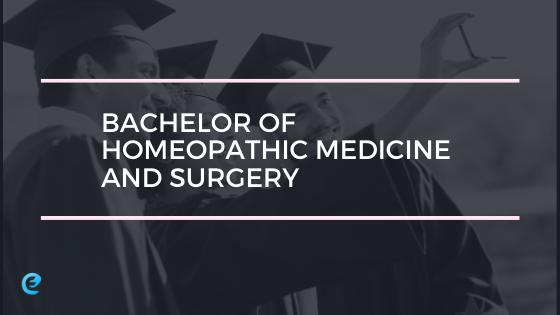The medical profession is divided into several paths. These include Homeopathy, Allopathy, Ayurvedic, and Naturopathy through which patients are treated. According to which Ayurvedic uses the ancient Indian way of using flora for medicinal purposes. Allopathy uses chemical drugs that are designed to cure a person. Naturopathy includes natural ways like meditation, yoga, etc for treating and preventing diseases. On the other hand, Naturopathy is a mid path between Allopathy and Ayurveda. Homeopathy or homeopathy is a pseudoscientific system of alternative medicine. Homeopathic preparations are termed as remedies and are made using homeopathic dilution. Its practitioners are called Homeopaths.
They believe that a substance that causes symptoms of a disease in healthy people would cure similar symptoms in sick people; this doctrine is called similia similibus curentur, or “like cures like”.The homeopathic doctors use natural substances like plants, herbs, minerals, animal sources. In this process, a chosen substance is repeatedly and thoroughly diluted. The final product is chemically indistinguishable from the diluent, which is usually either distilled water, ethanol, or sugar; often, not even a single molecule of the original substance can be expected to remain in the product. Between the dilution iterations homeopaths practice hitting and/or violently shaking the product, and claim that it makes the diluent remember the original substance after its removal. Practitioners claim that such preparations, upon oral intake, can treat or cure disease.
Branches You Can Go For
For PG in Homoeopathy, the choices are :
- Materia Medica – The branch of medical science concerned with the study of drugs used in the treatment of disease: includes pharmacology, clinical pharmacology, and the history and physical and chemical properties of drugs.
- Organon – Organon of the Art of Healing (Organon der rationellen Heilkunde) by Samuel Hahnemann, 1810, laid out the doctrine of his ideas of homeopathy. The Organon of Medicine is the cornerstone of homeopathic principles and practice and used by homeopathy students and practitioners.
- Pediatrics – Pediatrics is the branch of medicine dealing with the health and medical care of infants, children, and adolescents from birth up to the age of 18. The word “paediatrics” means “healer of children”; they are derived from two Greek words: (pais = child) and (iatros = doctor or healer).
- Psychiatry – Psychiatry is the medical specialty devoted to the diagnosis, prevention, and treatment of mental disorders. These include various maladaptations related to mood, behavior, cognition, and perceptions.
- Medicine – Medicine is the science and practice of establishing the diagnosis, prognosis, treatment, and prevention of disease. Medicine encompasses a variety of health care practices evolved to maintain and restore health by the prevention and treatment of illness.
Entrance Exam
Bachelor of Homeopathic Medicine and Surgery or BHMS is a graduate degree program in homeopathy that covers the knowledge of homeopathic medicine. Upon completion of this degree, students are eligible to become doctors in the homeopathic medical domain. Nowadays, homeopathic medicine study is being preferred by many students wanting to pursue a career in medicines, when compared to other medical courses.
Some of the entrance exams conducted for admissions to BHMS are: National Eligibility Cum Entrance Test (NEET) Bharati Vidyapeeth Common Entrance Test (BVP CET) Engineering, Agricultural, and Medical Common Entrance Test (Telangana and Andhra Pradesh) (EAMCET), Indraprastha University Common Entrance Test (IPU CET), Kerala Engineering, Agriculture and Medical (KEAM) and Punjab University Common Entrance Test (PUCET)
Eligibility Bachelor of Homeopathic Medicine and Surgery
The minimum eligibility for pursuing BHMS is X and XII qualifications from an approved educational board with Biology/Chemistry/Physics/English as the major subjects studied in class XII, with an aggregate score of at least 50 percent. The minimum age limit prescribed is 17 years. They further would have to sit for NEET BHMS, an all India Entrance Examination, for securing a berth in Homeopathic medical colleges in India. The duration of the undergraduate homeopathy course or BHMS (Bachelor of Homeopathy Medicine and Surgery) is of 5and ½ years.
After graduating with BHMS along with a one-year internship, a willing candidate may pursue an MD in Homeopathy. The duration of the postgraduate course is 3 years. The candidates are admitted in both undergraduate and postgraduate courses on the basis of merit.
Skillset for Bachelor of Homeopathic Medicine and Surgery (BHMS)
Homeopathy doctors require a unique set of skills to best serve their patients; some of which are inherent, and others that can be learned. Everyday duties will necessitate distinct skills, and by perfecting and refining these skills they can make themselves more competitive and their work will be much more attainable and enjoyable. The vital skills necessary for pursuing BHMS are as mentioned below
- Interest in promoting natural health and being proficient in homeopathic remedies
- Ability to explain complex ideas easily, and using logic/reasoning to identify the strengths/weaknesses of alternative solutions
- Ability to prioritize work and manage workload including the ability to work under pressure
- Building and developing excellent relationships with patients
- Emotional resilience and initiative and willingness to work in a pressured environment and challenging/stressful situations
- Enthusiastically looking for ways to help others and a compassionate/caring approach to other people’s feelings
- Giving full attention to what others are conveying, taking time in understanding the points stated, asking queries as apt, and avoiding untimely interruption
- Strong verbal and listening skills, an open mind and willingness to learn
- The ability to work efficiently as part of a multidisciplinary healthcare team.
Course Curriculum :
BHMS course comprises theoretical and practical knowledge of the homeopathic medication system. The course curriculum cover topics such as Human Anatomy, Physiology, Biochemistry, Community Medicine, among others. The course includes a compendium of pre-clinical and clinical subjects.
Syllabus Homeopathy
BHMS – First Year
- Organon of Medicine, Principles of Homoeopathic Philosophy and Psychology
- Physiology including Biochemistry
- Anatomy, Histology, and Embryology
- Homeopathic Materia Medica
- Homeopathic Pharmacy
BHMS – Second Year
- Pathology and Microbiology including Virology and Parasitology Bacteriology
- Organon of Medicine and Principles of Homeopathic Philosophy
- Forensic Medicine and Toxicology
- Homoeopathic Materia Medica
- Surgery including ENT, Eye Dental and Homeo Therapeutics
- The practice of Medicine and Homeo Therapeutics
- Obstetrics and Gynaecology Infant Care and Homeo Therapeutics
BHMS – Third Year
- The Practice of Medicine and Homeo Therapeutics
- Obstetrics and Gynaecology Infant Care and Homeo Therapeutics
- Surgery including ENT, Ophthalmology, Dental and Homeo Therapeutics
- Organon of Medicine
- Homoeopathic Materia Medica
BHMS – Fourth Year
- The Practice of Medicine and Homeo Therapeutics
- Organon of Medicine
- Homoeopathic Materia Medica
- Repertory
- Community Medicine
Specialization in Bachelor’s of Homeopathic Medicine and Surgery (BHMS)
1) Homeopathic Pharmacy
2) Homeopathic Paediatrics
3) Homeopathic Psychiatry
4) Homeopathic Skin Specialist
5) Homeopathic Infertility Specialist
Post-Graduate Courses after Bachelor of Homeopathic Medicine and Surgery (BHMS) :
Candidates can either work or opt for higher studies in homeopathy and the allied areas :
- M.D (Hom) Materia Medica
- M.Sc Clinical Research
- M.D (Hom) Organon of Medicine and Philosophy
- M.Sc Human Genome
- M.D (Hom) Practice of Medicine
- M.Sc Applied Psychology
- M.D (Hom) Case Taking and Repertorisation
- M.Sc Medical Biochemistry
- M.D (Hom) Psychiatry
- M.Sc Health Sciences and Yoga Therapy
- M.D (Hom) Paediatrics
- PGDM Holistic Health Care
- M.D (Hom) Pharmacy
- PGDM Acupuncture
- M.Sc Epidemiology
- PGDM Preventive and Promotive Health Care
- M.Sc Medical Biochemistry
- PGDM Diabetes Mellitus
- M.Sc Medical Anatomy
- PGDM Clinical Diabetology
- M.Sc Neuroscience
- MHA (Master of Hospital Administration)
- M.Sc Genetics
- MBA (Healthcare Management)
- M.Sc Food and Nutrition
- MPH (Master of Public Health)
Employment Areas/Recruiters for BHMS :
- Clinics/Nursing Homes/Hospitals (Private/Government)
- Medical Colleges/Research Institutes/Training Institutes
- Homeopathic Medicine Stores/Pharmacies
- Dispensaries
- Consultancies
- Charitable Institutions/NGOs/Healthcare Community
- Life Science and Pharmaceutical Industries
Job profile and Salaries :
| Job Type | Job Description | Annual Average Salary (In INR)
Freshers |
Annual Average Salary (In INR)
Experienced |
| Homeopathic Doctor | Conducting medical tests, running diagnosis, treating patients, and prescribing medicines. | 7-8 lakhs | 10-50 lakhs |
| Public Health Specialist | Analyzing and developing programs to enhance the health of people. | 4 lakhs | 5-15 lakhs |
| Private Practitioner | Providing private services to their patients concerned with health, psychological issues, and other problems | 8-10 lakhs | 15 – 60 lakhs |
| Pharmacist | Owns a pharmacy and interprets the doctor’s prescription, and also identifies therapeutic incompatibilities. | 1-1.5 lakhs | 3-6 lakhs |
| Teacher/Lecturer | Teach courses in their subject area, prepare and deliver lectures, and lead classroom discussions, assess students and grade them, arrange for outdoor medical camps. | 2 lakhs | 4 lakhs |
Frequently Asked Questions (FAQs)
Q1) Can a BHMS doctor perform surgery?
No, a BHMS doctor is not licensed to perform any surgical procedure.
Q2) Can a BHMS doctor prescribe allopathy medicine?
If a BHMS doctor wishes to practice allopathy, he/ she needs to study Pharmacy. Homeopathy doctors can pursue MD in Pharmacology after completing BHMS.
Q3) Is NEET necessary for BHMS?
Yes, to take admission to BHMS degree course, you need to clear NEET. The cutoff for BHMS degree course in NEET 2019 was between 100-130.
Q4) Can a BHMS doctor do MD?
Yes, after completing BHMS a candidate can opt for MD in homeopathy. The disciplines available are Pharmacy, Philosophy, Materia Medica, Paediatrics, Practice of Medicine, and Psychiatry Repertory.
Q5) Which are the best institutes for BHMS in India?
Some of the best institutes for BHMS in India are:
1) National Institute of Homoeopathy, Kolkata
2) Bharati Vidyapeeth Deemed University, Pune
3) Dr. Sarvepalli Radhakrishnan Rajasthan Ayurved University, Jodhpur
4) Jayoti Vidyapeeth Women’s University, Jaipur
5) Chandola Homoeopathic Medical College, Rudrapur



